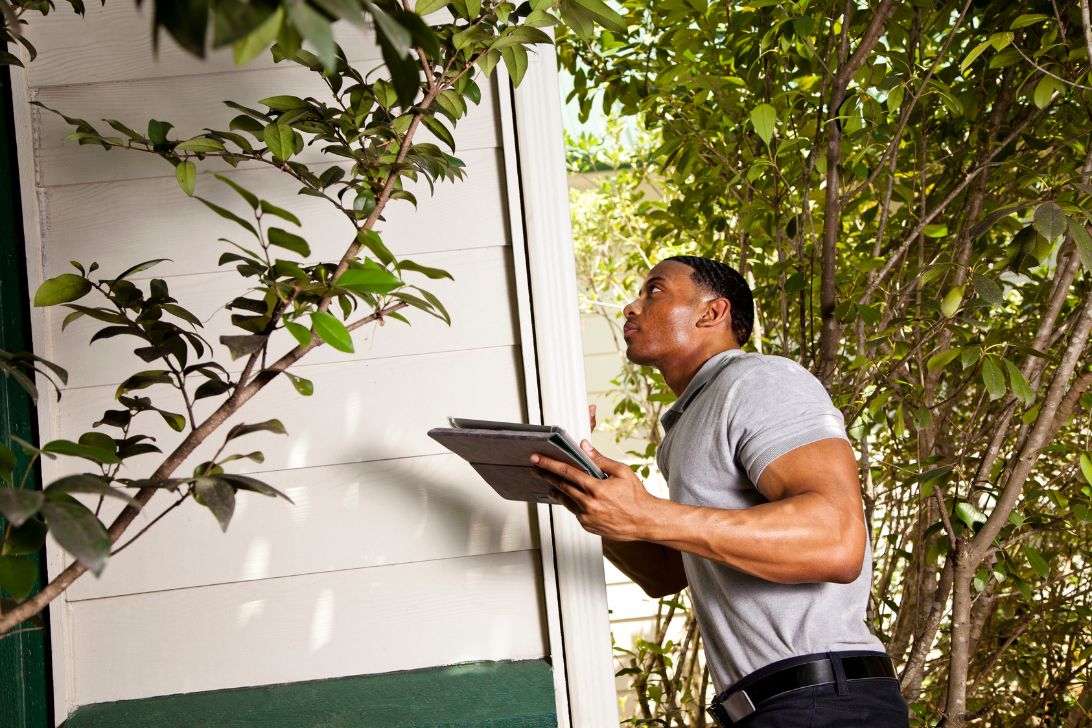What Is Escrow and How Does It Work?
The home buying process involves a due diligence process. In escrow meaning in real estate is that the seller is working with a buyer to sell the home. There are definitely some things you need to know to understand what happens with a house in escrow. So, let’s get into it.
Escrow Definition and Meaning
To be in escrow means the seller and buyer of a home have agreed to a set of purchase terms, and both the seller and buyer are completing the due diligence process of the home sale.
A house under contract meaning can be thought of the same thing. In some parts of the U.S. industry professionals and consumers say “in escrow” and in other parts of the country they say “under contract.” Therefore, whether you are told a home is under contract or a house is in escrow, think of these as having the same meaning.
You might be asking what due diligence is there to do? The due diligence is captured by the contingencies in the purchase agreement. For the buyer this can include having the property inspected, getting a mortgage, and having the home appraised. For a seller it means maintaining the property in the materially same condition, providing good title, and clearing out the property so the buyer can take possession.
How Does Escrow Work in Real Estate?

The real estate escrow process preserves the seller’s promise to sell and the buyer’s promise to buy once all contingencies are satisfied. The home buying process has many steps, contingencies, and includes numerous third parties.
The escrow process allows the opportunity for an offer to be accepted and for promises by the seller to sell and the buyer to buy to be kept so long as the contingencies are me. This way the buyer can do what she needs to do and the seller can do what she needs to do.
Buyer Responsibilities When in Escrow
Homebuyers with a house in escrow once a property seller has accepted their offer. The buyer must begin fulfilling his or her responsibilities once in escrow or under contact.
As the homebuyer you may have said you want to have a home inspection. Other common buyer contingencies can include the buying needing to sell a home to buy the home in escrow, to get a mortgage approved, and to have the property appraised.
Seller Responsibilities When in Escrow
Home sellers with a house in escrow have responsibilities, too. First, the seller is required to keep the property in the same or better condition than what it was at the time of accepting the buyer’s offer. The seller is required to report to the buyer material changes to the home.
Secondly, the seller needs to cooperate to provide an opportunity for the buyer to complete those agreed upon tasks. Most notably, this means making the property available for an inspection or an appraisal.
The seller typically is the party who must procure title work stating the seller has the ability to pass marketable title to the buyer. Basically, the seller is the owner or a person or entity who has the right to sell the property.
Lastly, the seller must meet his or her obligation to vacate and remove all personal property not selling with the property from the property.
What Is Escrow Money?

Escrow money is a homebuyer’s deposit on a property. Typically, the buyer is the one who reserves far more contingencies than the seller. Therefore, the buyer often makes a deposit on the property. Some states use the term earnest money instead of escrow money.
Buyers can lose their escrow money. This is most likely to occur in the circumstance the buyer decides to abandon the transaction or due diligence process without any materially valid reason. Buyers typically do not lose the escrow money if the transaction terminates for a reason protected by a contingency.
The Pros and Cons of Escrow
The escrow process offers a lot of benefits to both the seller and buyer. There are a few negatives of escrow though, too.
Pros
- Preserves seller’s promise to sell and buyer’s promise to buy
- Allows opportunity to complete due diligence for a major purchase
- Slows the process down which can help both buyer and seller remain objective
- Allows time for contingencies to be satisfied
Cons
- Locks a seller in despite the occurrence of a better offer
- Can go too slow sometimes
The Escrow Process in 10 Steps

The escrow process includes all of the parts of the home buying process after the offer has been accepted. These steps should be considered escrow explained and help you understand how does escrow work.
#1 Select an Escrow Agent
The escrow process starts by placing an order with the title company who will oversee closing the transaction. The title company will act as the escrow agent. As the escrow agent the title company can hold the escrow or earnest money. However, in some states it is common for the listing brokerage to hold the earnest money.
#2 Order the Appraisal with Your Lender
The next step in the real estate escrow process is to order your appraisal. Though it is common for the appraisal to come in after other steps in the escrow process, homebuyers would be wise to order the appraisal immediately. Appraisals take time to get completed. Also, the sooner the appraisal is ordered the sooner the homebuyer and seller will know whether or not there is an appraisal problem to be resolved.
#3 Formally Apply for A Mortgage
The third step when in escrow on a house is to work on getting your mortgage approved. You should make your formal application for financing once escrow is opened. Complete your application and begin turning financial documents to your lender. Also, your lender will begin discussing locking your interest rate.
#4 Perform Any Inspections

The next step of the escrow process is completing home inspections. If you received an inspection contingency in your offer, start completing those inspections immediately. The most common reason to stop a pending home sale is due to home inspection issues. Complete all inspections you intend to have. These could include:
- General home inspection
- Pest inspection
- Radon inspection
- Structural inspection (mostly applicable to modular homes)
- Water quality test if there is a private well
- Septic inspection if there is a private sewage disposal system
#5 Purchase Homeowners Insurance
Another step of the home buying process when in escrow on a house is to get homeowners insurance. If you are buying a home with a mortgage you will be required to get homeowners insurance. Even if you are paying cash you should get the property insured. Start the process by contacting insurers and getting quotes. Once you have decided who you want to use, tell them so. The insurer will then contact your lender.
#6 Review the Title Work
A title policy will be produced by the title company. Review this policy with your real estate agent or attorney in an attorney review state. Feel free to ask questions about the title policy. The title policy should include information about the following:
- The current and most recent past owners
- Property taxes and other charges at the property
- Any current liens on the property
- Whether or not covenants and restrictions apply to the property
- Whether or not the property is an HOA
#7 Review HOA or POA Documents and Covenants & Restrictions
The next step in the escrow process is to review applicable POA, HOA, and covenants & restrictions. If the home is in a homeowner association (HOA) or a property owner association (POA) with mandatory membership you need to review the bylaws and any amendments. The seller should be providing you with these documents in the amount of time stated in the purchase agreement. Also, check the title work or with your county recorder to know if there are covenants and restrictions on the property.
#8 Complete a Final Walk-Through

One of the most important steps in the home buying process is to complete a final walk-through. Homebuyers should seriously consider completing a final walk-through of the property immediately before closing. There are several things you should be focused on during the final walk-through which include:
- Did the seller remove personal property not included in the sale?
- Has the seller left personal property that is included in the sale like appliances?
- Is the property in the same material condition as when your offer was accepted?
- Is there any damage to the property which has either been revealed now that everything is moved out or occurred as the seller moved out?
#9 Review the Settlement Statement
The final step before closing on a house in escrow is reviewing the settlement statement. Some areas call it a HUD-1 or an ALTA. This statement provides all of the credit and debits for the seller and buyer. Some states require the buyer only see the buyer’s side and the seller only see the seller’s side. Review the settlement statement and compare it to the transaction documents to check for accuracy.
#10 Closing
The final step when in escrow on a house is to close. The closing of the transaction will also close the escrow. At this time the buyer and seller agree that all stipulations in the purchase agreement have been completed. The seller will sign the deed and the buyer will sign a lot more documents including the mortgage and the note. Possession will be handed over based on what was agreed upon in the purchase agreement.
How To Choose an Escrow Provider
Most homebuyers and sellers look to their real estate agents for advice on who to provide escrow services. Escrow services are usually provided by a title company.
An escrow service provider does several things. First, the title company provides or sources a title insurance policy. Secondly, the title company researches the property’s chain of title to look for blemishes. Also, it confirms the seller’s ability to sell and the buyer’s ability to buy. Lastly, the title company completes the closing process.
Many states rigidly regulate the fees charged by a title company. Therefore, the fees are often not too different from one title company to the other.
When looking for an escrow provider choose one with the following characteristics:
- Longevity in the industry
- Busy closing lots of transactions
- Convenient office locations
- Ability to make special accommodations if needed (i.e., remote or mail-out closing)
- Reasonable rates for the unregulated fees
Conclusion
In escrow meaning in real estate is the holding of an agreement by a buyer and seller preserving their promises to perform while each party is satisfying their specific obligations.
The real estate escrow process protects the buyer by preventing the buyer from accepting a backup offer and moving forward while the original buyer is completing his or her due diligence.
About Quadwalls.com
Quadwalls.com helps home buyers and sellers make better decisions and save money when buying and selling real estate. The Quadwalls Real Estate Team of REALTORS® in Northwest Indiana are ready to help you.
How Quadwalls Helps Homebuyers
The Quadwalls Real Estate Team has some of the best real estate agents in Northwest Indiana. We are ready to help you find and buy your new home. You can start to search for houses for sale in Northwest Indiana, here. Or, tell us more about what you are looking for by completing your Quadwalls HomeFinder Assistant today!
How Quadwalls Helps Home Sellers
The Quadwalls Real Estate Team in Northwest Indiana offers home sellers a full-feature home selling service with low, low, low real estate commission fees. Or, get started with a free broker price opinion about your home’s market value.
 Updated: March 29, 2023
Updated: March 29, 2023  3469
3469  11 min
11 min













